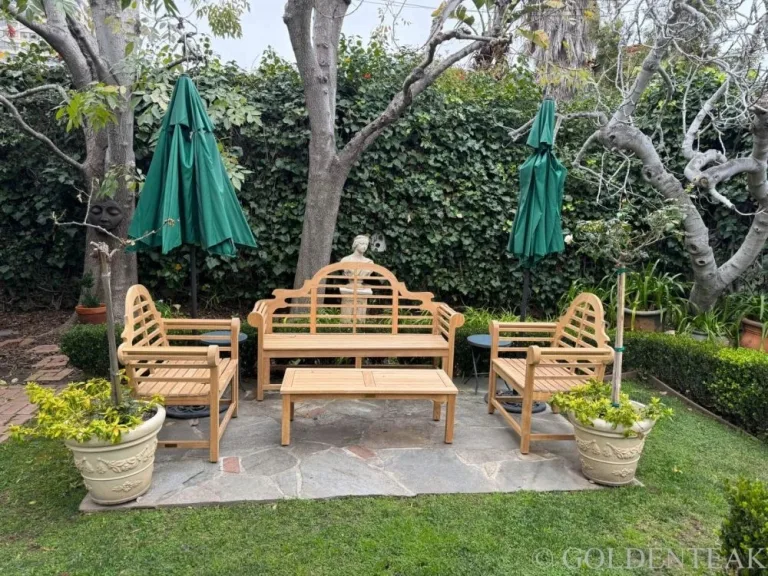The Outperforming Advantages of Mobile Home Parks
Real estate tends to appreciate, but not always. An investment’s return depends on the local market’s performance, including factors such as demand, operating costs, and economic resilience. These factors can vary across different types of real estate or asset classes. Apartment buildings in the same city may outperform commercial shopping centers, whereas in another locale, the opposite occurs.
While a typical real estate investment’s return hovers around 10%, the return on mobile home parks can be higher. Market conditions are a significant factor, but so are financing rates and agreements. Seller financing, for instance, usually comes with more favorable terms than a bank loan. Because mobile home parks aren’t as conventional as other types of commercial real estate investments, seller financing agreements are probable.
There are other untold advantages, as parks tend to have consistent demand regardless of what’s happening in the broader economy. Expenses are also lower when you only have to maintain common areas rather than entire buildings. Let’s explore the hidden benefits of mobile home park investments and how these advantages contribute to higher potential returns.
Less Expensive Financing Options
Even if you’ve never invested in real estate, you can intuit that there is a laundry list of costs. There’s maintenance and utilities. It takes a lot to keep a property in good shape, from the inside to the outside. Then, you’ve got the down payment, closing fees, and financing expenses.
There are often less expensive financing options with mobile home parks. Many mobile home parks are owned by mom-and-pop operators—some of whom are ready to retire, which means they are also prepared to sell. Watch for owners who are willing to sell with owner financing included. Taking over the existing owners’ loan is a possibility. Another is agreeing to pay them back a percentage of your park’s profits over time. This scenario would work perfectly for you if the property is currently owned outright.
A third option you may not be familiar with is an assignment. With an assignment, an investor obtains a property under a contract and then transfers the rights to another. The investor who initially secured the property completes the transfer for a fee.
Lifestyle Investing expert Justin Donald explains that “Single-family home wholesalers use this approach, but it also works in other sectors, such as mobile home parks.” Assignments are something you, as an investor in mobile home parks, can also facilitate to earn money. There’s less risk involved for property sellers, buyers, and assignment firms. Access to underserved markets is expanded, deals are vetted, and everyone saves time.
Consistent Demand
20.6 million people in the U.S. live in mobile homes, and 9.3% of new home starts are manufactured homes. Affordability is a top driver of demand, as conventional home prices continue to creep beyond the feasible range. Mortgage rates have recently fallen slightly, as have prices in some areas. However, potential monthly mortgage payments remain a stretch for many households.
Average rental rates have risen, with most areas exceeding $1,000 per month. Retirees, singles, and those earning average or lower incomes may find it challenging to get by. Mobile homes come at a significantly lower price, making them more affordable for more people. Because of their lower cost, demand for them is steady.
Not only do people spend less to buy a manufactured home, but they often spend less to keep it. Utilities don’t run as high when there’s less space. Plus, newer mobile homes come with energy-efficient features to keep utility costs in check. Furthermore, you don’t have a big yard to maintain.
Consistent demand for mobile home parks translates to steady cash flow for investors. The income is more predictable than for apartment or office buildings, where tenants may come and go. There’s also less volatility, meaning you don’t have negative returns one year that wipe out last year’s gains. And when it’s time to sell a park, you can reassure potential buyers they’re making a solid choice by showing them the books.
Lower Overhead
Remember the mention about real estate investments usually having a laundry list of expenses? This isn’t the case with a typical mobile home park. Under the most popular business model, the investor owns and rents back the land, not the homes. Tenants own their properties, which means they’re financially responsible for their upkeep.
What investors take care of are the common areas, including the community’s shared streets, green belts, and any facilities. You’ll probably have street lamps and roads. There’s also the question of utility hookups and infrastructure. But unless you have a ton of community amenities, you’re not looking at much to maintain.
Depending on how hands-on you want to be, you may have the expense of a property management company. These companies can help collect rent, manage tenant relations, and address common-area maintenance issues. Overall, though, you’ll spend less than what you would on traditional real estate.
In residential properties, the investor is usually responsible for everything. When the water heater bursts, it’s on you. If the building needs a fresh coat of paint and new siding, it’s coming out of your pocketbook. Office buildings can be like residential leases, although there is some shared tenant-owner responsibility with retail spaces in shopping centers. Mobile home parks don’t come with the same level of overhead, so that you can keep a larger percentage of the income.
Economic Resilience
Because of the steady demand, mobile home park investments are less vulnerable to economic downturns. It costs thousands of dollars for tenants to relocate their mobile homes to another park, if one’s available. This expense usually outweighs any pros. Consequently, tenants stay put, leading to higher occupancy rates.
For investors, higher occupancy increases cash flow and lowers overhead. You don’t have to market as much to keep a mobile home park full as you do with an apartment building. Of course, resident acquisition and retention involve more than advertising. Often, owners have to offer incentives to get people in and make it easier to stay.
These dynamics aren’t as strong in mobile home park communities due to affordability. Tenants are also less likely to miss lot rent payments. Lot-rent averages range from $200 to $800 across the country. Compare this to the average residential rent of $1,406. For residents who own their mobile homes outright, it’s definitely cheaper to stay put.
Even with a mortgage payment on a manufactured home on top of lot rent, it’s still likely to be more affordable than moving. Mobile homes are usually less than $200,000, making a 30-year monthly mortgage payment under $800 with 6% rates. And the larger down payment someone comes up with, the less costly that mortgage payment is.
Lower default rates and higher occupancy levels make mobile home parks a reliable investment. Long-term stability usually outperforms short-term gains. In real estate, economic resilience means fewer potential short- and long-term losses.
The Mobile Home Park Advantage
Real estate investments can be lucrative, which is why many investors add them to their portfolios. But within the broader real estate space are unconventional assets that don’t get as much attention as they deserve. Mobile home parks are one of those and come with beneath-the-surface advantages. It’s these benefits —such as lower-cost financing options and economic resilience —that can lead to a winning, long-term performance streak.




